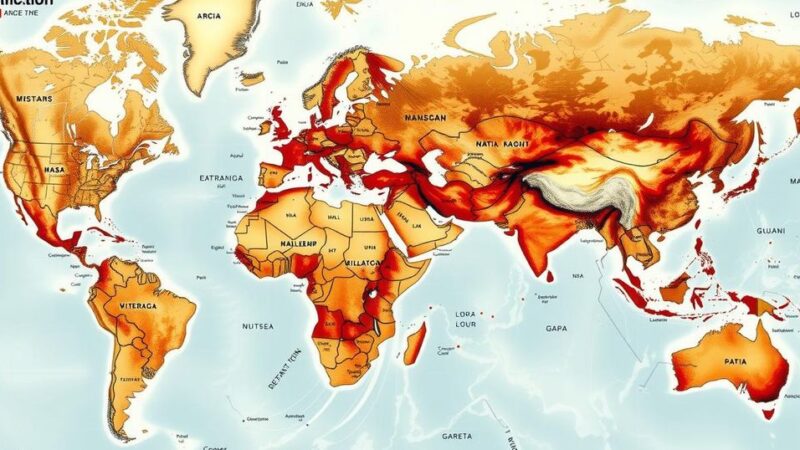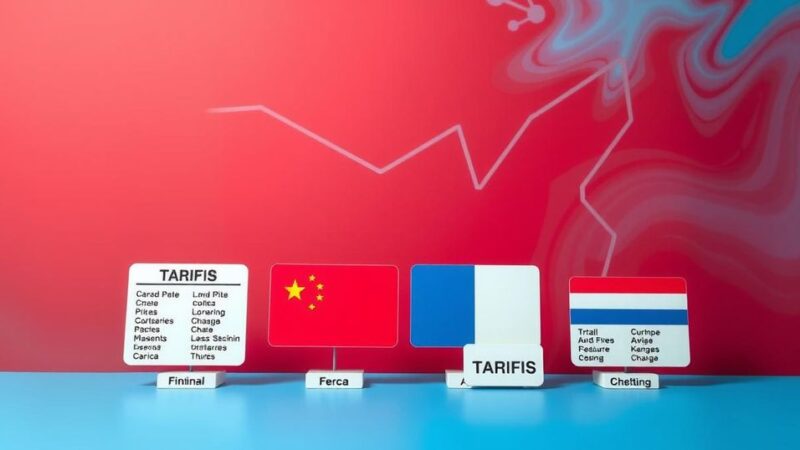Russia’s veto at the UN led to the formation of the Multilateral Sanctions Monitoring Team (MSMT) by 11 countries, aiming to address sanctions violations independently. Despite its potential, the MSMT faces significant challenges, including issues of legitimacy and operational effectiveness. Proposals for improving monitoring efforts include fostering international cooperation and increasing the flexibility of sanctions review processes to mitigate their impact on civilians.
In response to Russia’s veto within the UN Security Council regarding reports on North Korea’s sanction violations, a coalition of eleven countries founded the Multilateral Sanctions Monitoring Team (MSMT). This initiative, involving nations such as Australia, France, Japan, and the United States, aims to investigate violations independently of the UN framework. The formation of the MSMT reflects a growing trend towards unilateral action when multilateral mechanisms prove ineffective, though it comes with inherent challenges.
The emergence of a rift in the multilateral system became apparent in 2018 when Russia questioned the efficacy of North Korea sanctions in curbing its nuclear ambitions. Subsequent calls from Russia and China for the easing of these sanctions, citing humanitarian concerns, reinforced this shift. As the violation of sanctions often occurs at the behest of governments, enforcement and accountability remain problematic, particularly as Russia has benefitted from these violations.
The MSMT aims to address sanctions violations amidst the UN’s inability to act effectively. However, operational challenges persist, such as potential obstruction by Russia and North Korea and the limitations of sanctions that depend on US dollar transactions. Moreover, without UN backing, the MSMT’s legitimacy is questioned, potentially undermining its findings and prompting anti-Western sentiments due to secondary sanctions.
To enhance the effectiveness of non-UN monitoring bodies, fostering trust through Track II diplomacy is recommended. Engaging directly with foreign businesses and proactively sharing information about the consequences of non-compliance could strengthen monitoring efforts. Ensuring inclusivity by inviting input from a diverse range of countries is essential for building legitimacy and cooperation around sanctions enforcement.
Moreover, it is critical for both UN and non-UN bodies to adopt more flexible sanctions review processes that mitigate negative impacts on ordinary citizens. The failure to review sanctions risk increasing defiance in sanctioned nations, leading to more aggression. Thus, the MSMT and its counterparts must navigate these numerous challenges to uphold the efficacy of international sanctions regimes while maintaining humanitarian considerations.
The establishment of the Multilateral Sanctions Monitoring Team reflects a significant move towards unilateral action in resolving sanctions violations amidst UN inefficiencies. While these efforts provide a potential model for future actions, they encounter considerable hurdles related to legitimacy, enforcement, and the impact on humanitarian situations. Thus, effective engagement and flexibility in the review of sanctions are essential for fostering cooperation and enhancing compliance among potentially sanction-evading states.
Original Source: www.lowyinstitute.org






